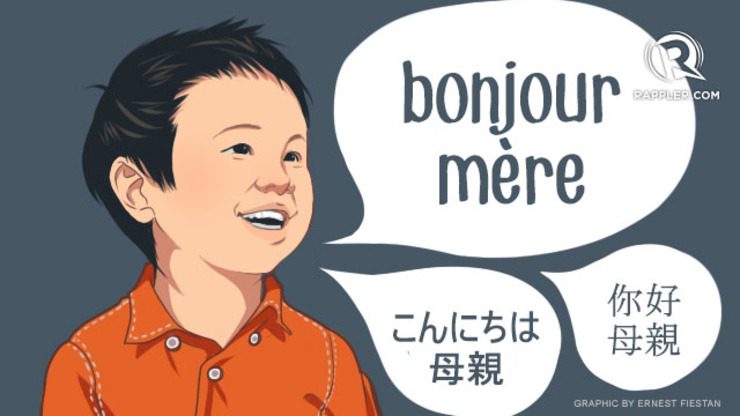SUMMARY
This is AI generated summarization, which may have errors. For context, always refer to the full article.

I have always been fascinated by how much of our childhood defines our adulthood. Many studies show that while your genes play a basic role, the foundations for development that will most likely determine how you turn out in life depends on what you have experienced from 0-3 years old. A big part of child development at that age is on language. But how far deep is the imprint of the early words we hear?
Apparently, very deep that even if we neither speak it anymore nor even consciously remember it, its traces are in our brain. This is what a recent study has surprisingly found out.
They studied children (9-17 years old) who were born in China but who, before they turned 3, were adopted and raised by French-speaking families without being exposed to the Chinese language again. They compared these with children who were bilingual in Chinese and French and to those who only spoke French. They scanned their brains using fMRI machines to see what brain parts are activated while they are listening to Chinese words. Indeed, the activated brain parts for the adopted children were the same as the bilinguals but very different from the ones who spoke only French.
The predominant thought about language is that yes, we are born with the capacity to learn many languages but this capacity gets pruned as we grow older because we don’t need to learn as many in order to survive. We also become more sensitive to sounds that are useful to us and less sensitive to those that we do not need. So based on observation, scientists have concluded that we indeed lose many of the languages we were able to acquire as young children if we do not use them as much as we grow older. But one of the nagging questions about language development is whether we really lose the language we learn completely or if it still imprinted in our brains and would just have to overcome the problem of retrieving it.
This study proves that the connections that define those early words are still in our brains despite years of non-use. I find it amazing how deeply embedded those first words are in our brains. So imagine if you were born in another country, and for some reason, had to be raised in another with a completely different language before you were 3. You may just have another language lurking within you that may just rise to the surface given the right triggers.
However, right now, we don’t know what those triggers are or if having those connections would make it easier for you to speak your forgotten language again. The study was so cleverly designed that they really chose the Chinese language, which is tonal as opposed to French. When they exposed this tonal element to the children, it became clear from the brain scans that the brain parts activated for the different groups were different.
The brain parts that “came alive” for the ones who were adopted by French-speaking families and for the bilingual ones, were the same: the left superior temporal and the planum temporale. These parts are really known to process tonal languages. This is different for the brain part activated for the ones who spoke only French. They processed in their right superior temporal gyrus, which is associated with the processing of complex sounds but not language. In other words, this last group perceived the Chinese language, which they never learned at any point in their lives, as mere sounds.
I wonder how this will affect children whose language development has been largely shaped by cartoon network or anime. Will those language traces run as deep?
One of my nephews, because of his unfettered exposure to Japanese cartoons when he was very young, has spoken Japanese ever since I can remember. None of his family members speak Japanese. He never learned Japanese formally. He even sings in Japanese while in the shower. When he went to Japan last year, he really felt like he was home and interpreted for his Dad. I am pretty sure we did not adopt him from Japan. But could it be in some sense, because of his love for it when he was very young, that Japanese were his original words?
For now, the study showed that even if you do not speak your original language now, if you learned it before you were 3, its neural shadows are still in your brain. How many languages do you think you are keeping in your brain? – Rappler.com
Add a comment
How does this make you feel?





There are no comments yet. Add your comment to start the conversation.